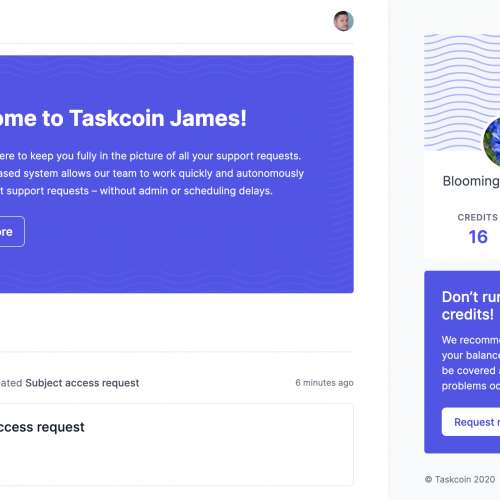Recently, we’ve made the switch from Campfire, a simple platform for group-based project chat, to Slack, the super trendy messaging app that’s swept across the tech world.
Why did we do it? Well, there’s two reasons:
Firstly, Campfire developers 37Signals shifted their focus (and company name) to Basecamp last year. We liked Campfire (and we still use Basecamp for project management), but it hadn’t seen any real innovation in a long time. We were mostly using Flint, a Mac app that took Campfire out of the browser. We loved Flint and it did everything we needed it to, but when the developers stopped work on it earlier this year, it was time for us to move on.
Secondly, and most importantly, the team wanted Slack. Or more accurately, our developers wanted Slack. Slack has a lot of impressive functionality, integrates nicely with pretty much everything, and has exploded in the tech community, meaning if you weren’t using it, you were probably getting left behind.
We instigated a 2 week experiment with Slack alongside Campfire in July this year. Slack won hands down, on the basis that it did everything that Campfire did and so much more. We made the move to Slack at the beginning of August.
Now we’ve started to settle into it, we’re beginning to understand what the biggest advantage of using Slack is for us: happiness.
A conflict between happiness and communication
There’s a clear divide between how different people on the team feel about using Slack.
Firstly, the developers love it. They love the integrations, emoji support and awesome interface, as well as the way Slack helps them to organise what they’re doing. The ability to break projects down into independent channels, with support for attaching files, code extracts and text snippets built right in, helps them to stay organised. They’re also impressed by the way Slack notifies users of messages, as we only get push notifications on our phones (if we’ve installed the app!) while we’re away from our laptops. On the whole, Slack is pretty slick, and fits nicely into people’s workflows, and our developers really appreciate this.
The product managers, however, aren’t so keen. For them, Slack is stepping on the toes of our project management software, Basecamp. It’s harder now to draw the line between what should be communicated in Slack and what should go into Basecamp, and therein lies the problem.
Making a compromise
Recently, we wrote about our approach to projects and one of the most important principles we bear in mind is that “happiness is the key to success”. We believe the key to a successful project is finding the right balance between client happiness, team happiness and cash flow.
You might also remember that another of our key principles is “centralise all communication”. Keeping all of our communications in one place helps us to document who said what, when and why, keeps clients in the loop at all times, and means we can keep an archive of all project communications should we need to refer back to them later (an audit trail if you like).
In an ideal world, everything we do will fit neatly into our project principles. However, every now and then, something comes along that causes conflict.
Slack causes conflict between happiness and communications.
On the one hand, the team are happy that they’re using a product that suits them. It’s slick, has genuinely useful features, integrates with other apps the team use and generally fits nicely into everyone’s workflow.
On the other hand, using Slack means taking a risk with communications. Now that we’re using Slack and Basecamp to communicate, the product managers are having to work harder to make sure that the right communications are in the right place.
So how do we make it work?
We have fantastic product managers who are able to keep on top of this stuff, and even flip it to make things work for us.
For example, we’ve recently started using Slack groups for ‘mini-projects’; internal projects we would have set up in Basecamp previously, but which would often end up ignored and unused. These mini-projects are working great, and finally, communications around these internal projects are being centralised in the way they haven’t been before.
Our product managers are keeping a close watch on Slack groups, channels and Basecamp projects to make sure everything is where it needs to be. Yes, it’s makes things a little tricker from a project perspective, but most importantly, it makes us (on the whole) a happy team, and a happy team creates success.



